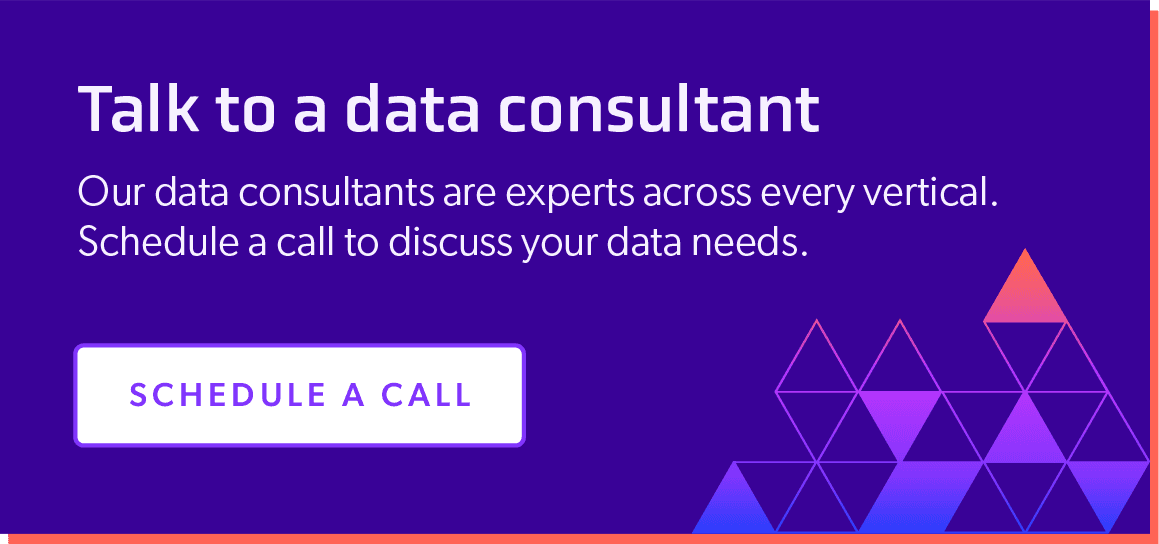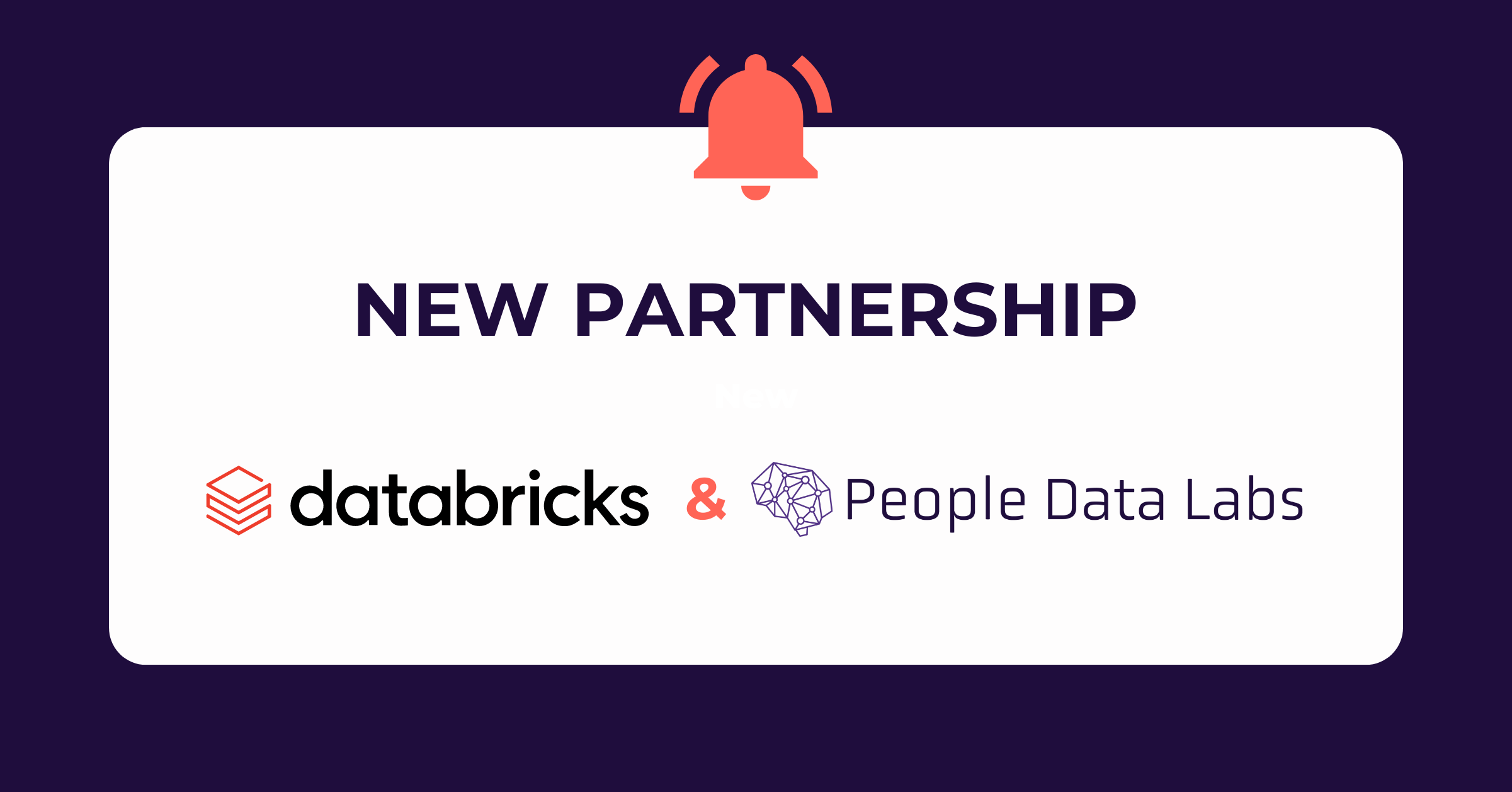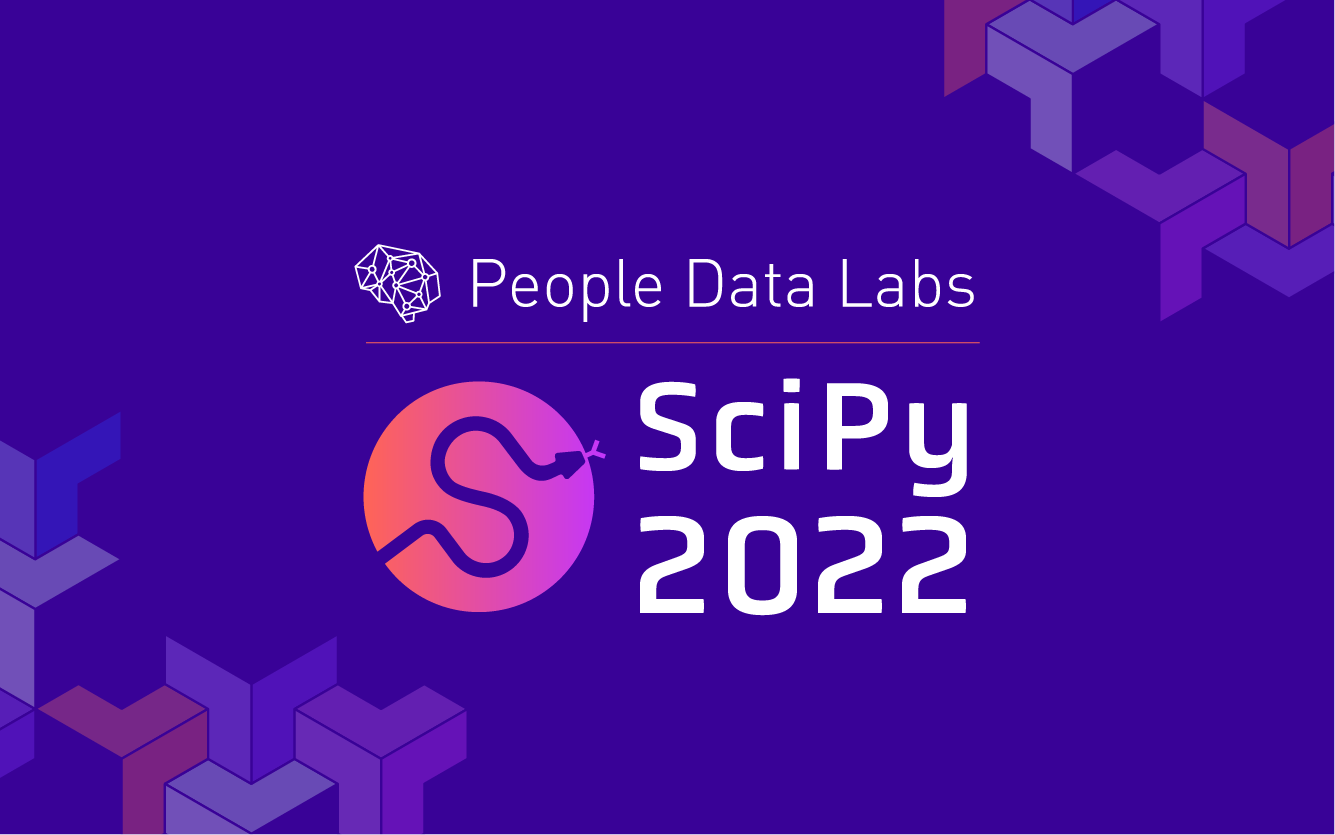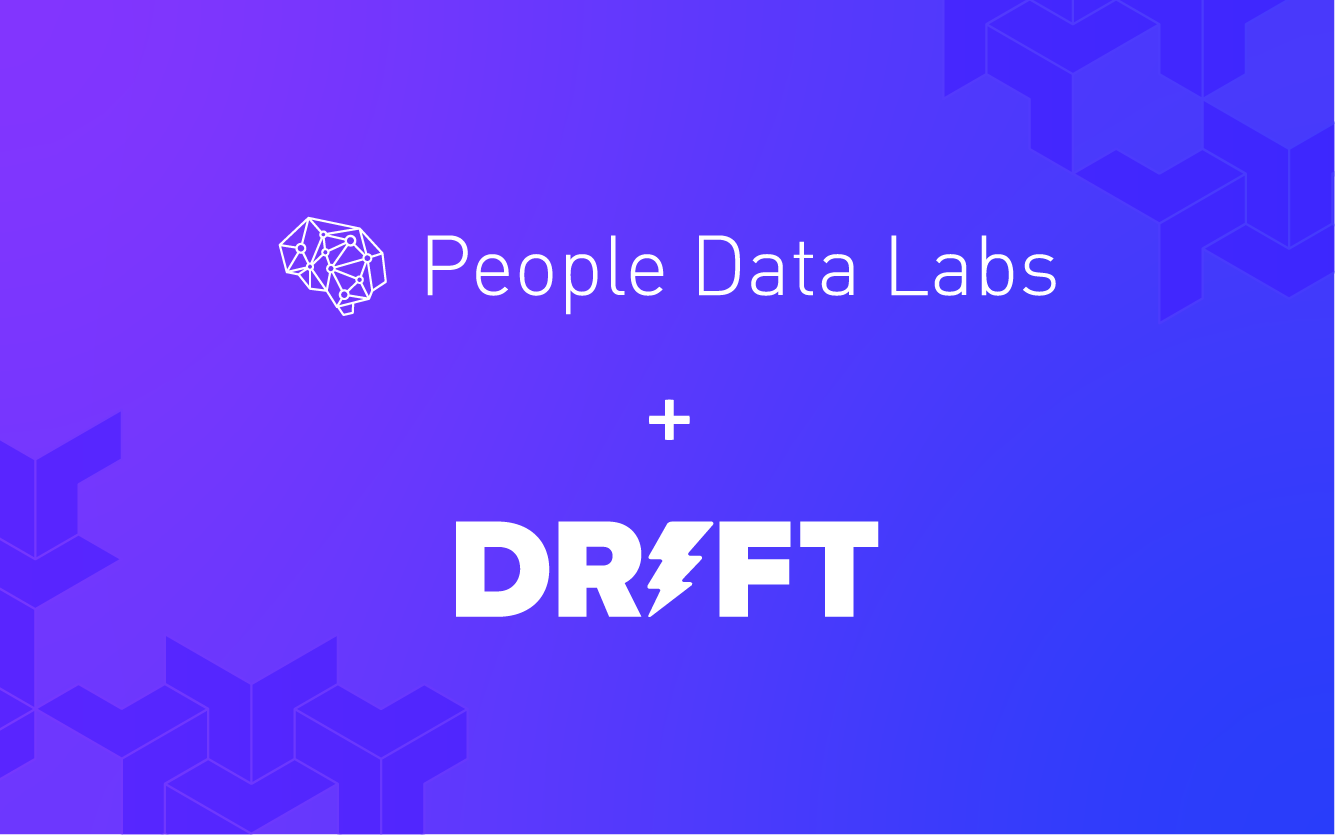
Looking Ahead: PDL’s 2022 Predictions
December 15, 2021
2021 is already nearing a close. Unbelievable, right?
In some ways, this year felt like a sequel to 2020, and in others, it felt like a whole new world of change and upheaval. At People Data Labs, it was anything but business as usual. We’ve grown our team, introduced new products and datasets, and raised $45M in our series B round to continue making data more valuable and accessible.
Looking forward into 2022, data is becoming exponentially more important as businesses navigate the digital world. We interviewed several of the MVPs shaping People Data Labs’ products to gather their predictions for 2022 as we head into a potentially more tumultuous yet innovative year.
Here’s some of their thoughts:
Sean Thorne, co-founder and CEO
We’ve long said that every business is going to become a data business, and that data-as-a-service (DaaS) companies will provide the foundation for this transformation, both at legacy companies and for the next generation of data-enabled startups. Many investors have already foreseen the critical role that data firms will play in enabling this next wave of innovation, and 2022 will see even more investment in the DaaS space. On the venture side, this will take the form of targeted investment in data providers that solve very specific data challenges within industry niches.
In the enterprise, 2022 will be the year that large legacy companies significantly accelerate their investments in third-party data resources. The past few years have seen enterprises in key sectors like finance and HR invest in their ability to acquire and act on data. In 2022, many of these companies will make smart investments that will help them more effectively leverage the data they are collecting while augmenting it with third party data so that they can derive insights, build data products, improve their bottom line, and power a growing array of data-powered business applications.
Varun Villait, CPO
Investment research and due diligence have always been data-driven underpinnings of venture capital investment and M&A planning. However, given the accelerating rate of startup development, traditional research tools aren’t enough to paint a complete picture of a company. I anticipate that in 2022 more investors, both at VC firms and institutional funds will look to non-traditional third-party data sources to augment traditional research tools. In particular, I believe investors will begin to leverage new layers of professional data to better understand the personnel composition of target companies, the track record of founders, and the development paths of successful startups.
By leveraging data sources that can provide deep insight into individuals' professional backgrounds at scale, and tools to leverage that data to understand how successful companies build and scale their teams, investors will be able to derive new insights on which to base key investment decisions. Data-as-a-service companies will play a crucial role in providing the data and tools to build these insights and will be an increasingly versatile complement to traditional investment research methods.
Steve Lappenbusch, Principal Product Manager
Business risk is going to define 2022 and many years to come. It’s prominence will be driven by the murkiness of digital identity. The 20th century structures that we’ve used to define digital identity (things like device ID, URL, and web cookies) are all helpful, but they do not meet the needs of 21st century identity.
The need for accountability is skyrocketing as companies, especially fintech providers, add more customers and try to sell a wider range of more sophisticated products. Businesses analyzing risk will increasingly need to understand both the individual owner(s) and their companies, as a single risk and commercial identity based on what you want to understand - not based outdated assumptions reflecting norms of the past.
The key distinction for 2022, and for the 21st century, is the collapsing boundary between people’s personal and professional identities. Every year more people work from home, work or more side gigs, or even own a business alongside traditional employment. For many, all of these things happen in the same place where they live and play, and on the same devices.
Traditionally, when a business is thought of as an identity at all, it was considered to be a separate entity. But fully understanding an identity means seeing a subject’s professional life as clearly as we see their consumer life. It means thinking of these two identities as a single entity. Pretending the two are separate is an artificial distinction born of legacy assumptions and cultural norms that are eroding or gone already.
Ben Eisenberg, Director of Product
The value of data as a raw commodity is going to decline. What will continue to be valuable, and in fact grow in value, are workflows, Services and engineering work that reduce the effort that goes into consuming data and exposing it to the end user will only increase in value going forward.
People want to get started as fast as possible, and that increasingly means finding a solution that is usable right out of the box. While there are a lot of generic data connectors today, I expect to see a lot more out-of-the-box solutions built for specific verticals to better serve those markets. That’s something that PDL is doubling down on in 2022: not only getting more data and building out data, but also building out workflows and partnerships that make it easier for our customers to use data.
A lot of companies that are not themselves data brokers have a lot of data. That data is just sitting there and those businesses want to find ways to monetize it. You’ll see more companies stepping in to monetize data on behalf of other businesses rather than those businesses setting up their own in-house data operations -- data as a service, as a service.
Data marketplaces will become more prevalent. Businesses value the ability to self-serve either by buying smaller slices of data that they need for a tactical job, or by posing a data query or question and getting an immediate response. I believe that we’ll increasingly see data providers focus on selling more bespoke solutions. It’s a much more customer-centric motion than how large flat-file deliveries work today.
Based on these predictions, we hypothesize for 2022 and the near future:
Stemming from the trend of as-a-service models, customer expectations are increasing to now expect features like self-serve offerings, integrated verification/signups, reactive databases to allow maximum efficiency, and out-of-the box solutions to prioritize their products of projects as soon as possible.
Data’s value will decrease over time. To add or create value around data, data curators and companies must apply innovative means to add relevant contextualizations to new and existing information and offer more bespoke solutions.
Every company, especially ones heavily involved with risk such as investment and fintech firms, will need to adopt data-driven operations to stay relevant. To accomplish this, many will offload the work required to extract value from their data via a DaaS partner, and can potentially even resell this added-value data to other companies as another means of income.
Distinctions between business and individual identities will blur as companies seek to understand both the individual owner(s) and their companies as a single identity to mitigate risk and detect fraudulent behavior for high-risk industries.
The way we view data will shift from manually querying a series of data points to accessing and toggling relational connections between data points.
The way businesses use DaaS will become more nuanced and solve more niche challenges, accelerating the market for data-driven operations.
Looking to get a head start on your data strategy for your business in preparation for 2022?
Talk to our team to learn more or get up and running ASAP. And, get a free trial API key today, to get an understanding of the self-service product approach.
Like what you read? Scroll down and subscribe to our newsletter to receive monthly updates with our latest content.





